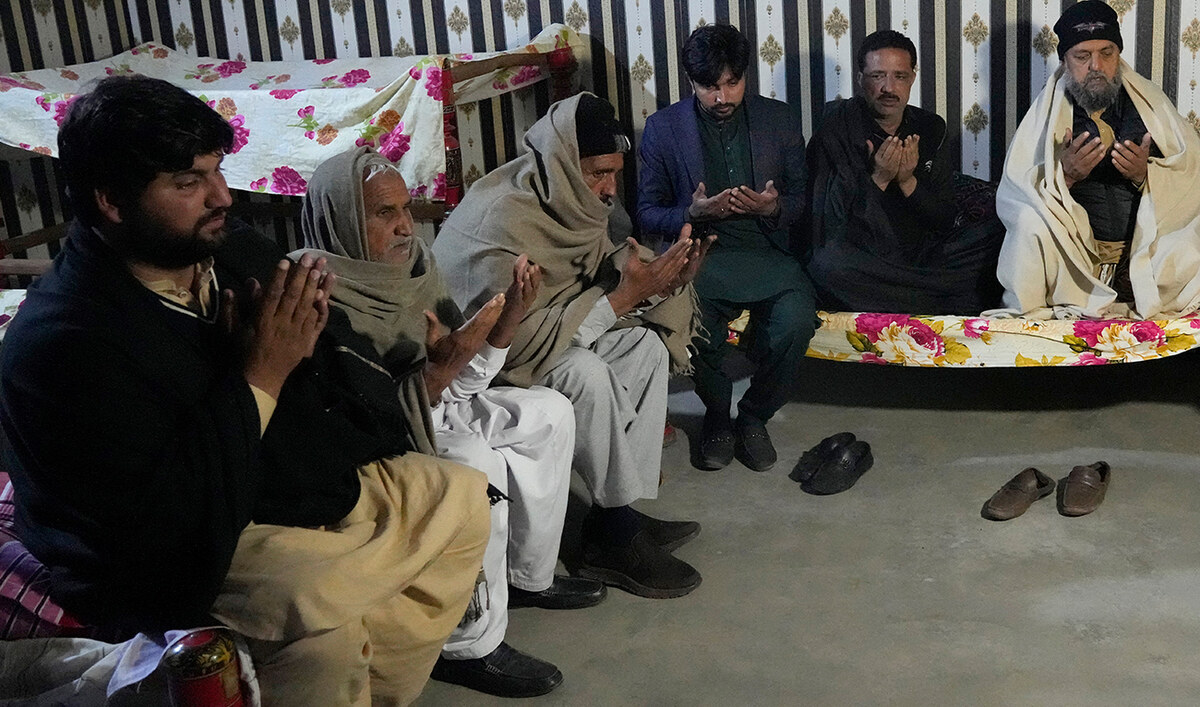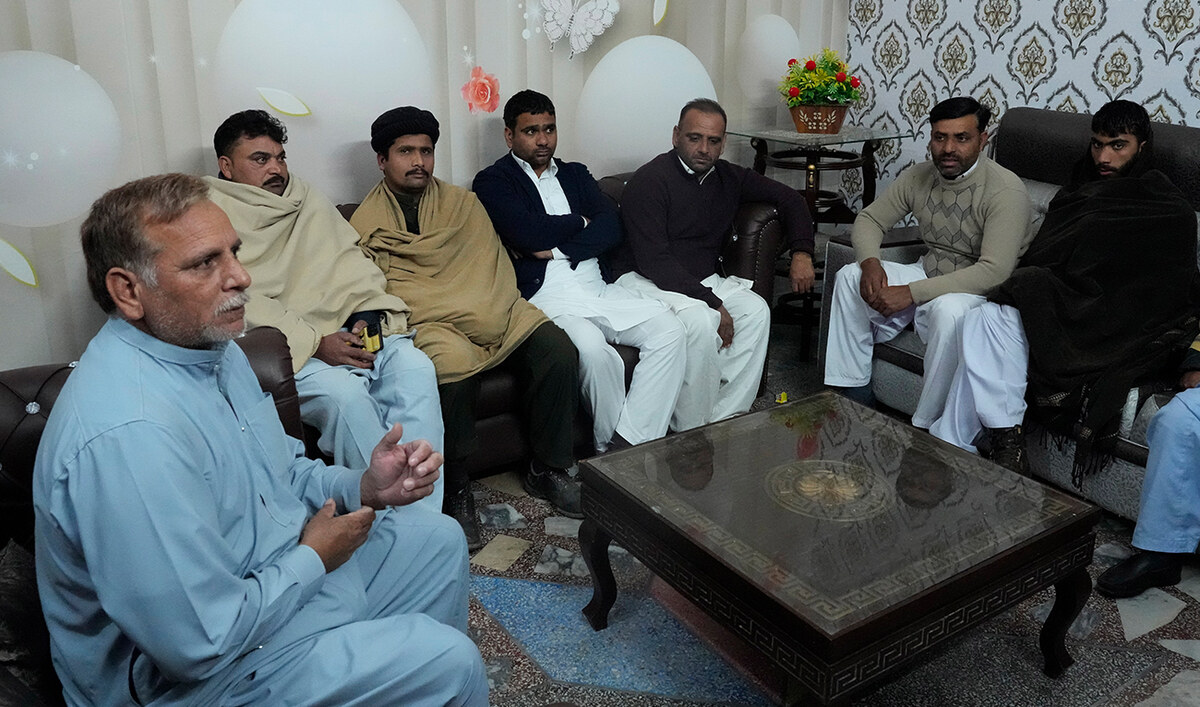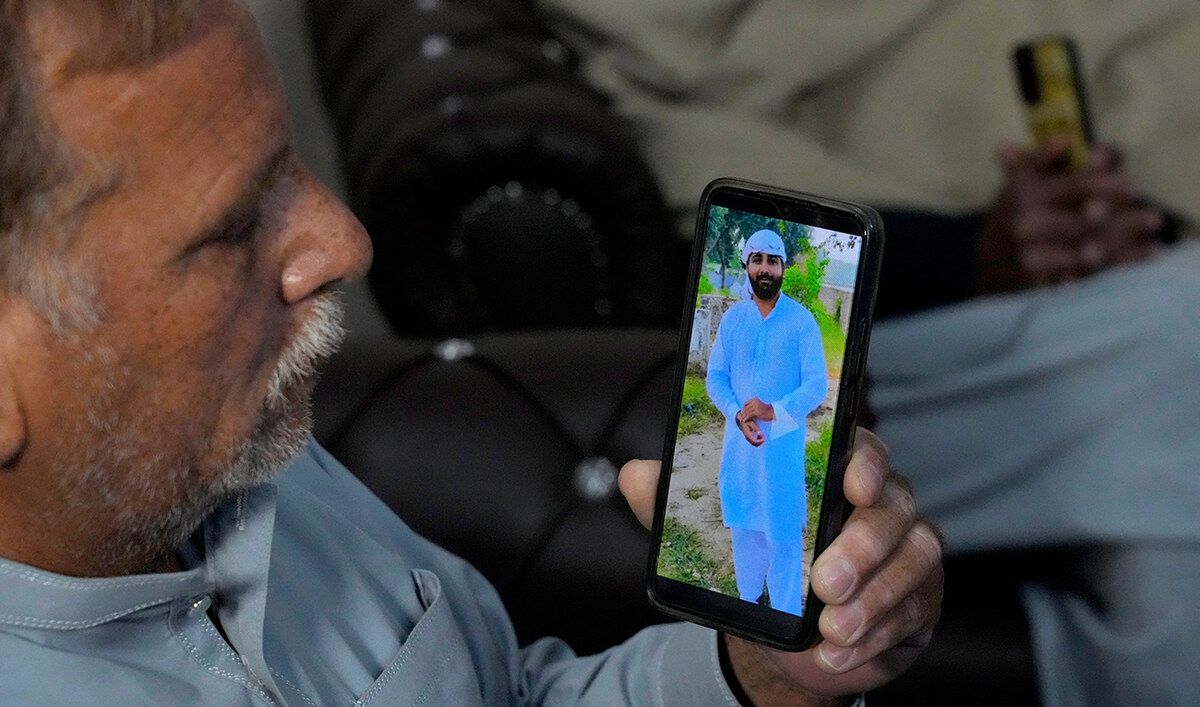LAHORE: Two months after Pakistan detected its first coronavirus patient on February 26, the country’s senior most health official, Dr. Zafar Mirza, admitted in a press briefing that the state could only test 6,500 samples of the virus in a day.
A recent report by the World Health Organization (WHO) insisted that Pakistan should be conducting over 50,000 tests per day.
Pakistan had fallen short of the ambitious April 7 target set by federal minister Asad Umar who chaired the National Command and Control Center (NCOC), the central body for decision-making about COVID-19 in the country.
Umar had promised to push the testing beyond 25,000 per day by end April — a target that couldn’t be met.
Even by May, the capacity was low, and the actual tests being conducted were even lower, below 14,000 per day.
Test numbers were barely crawling at a time when the government had begun phasing out restrictive measures for the population of over 207 million.
But the month of June saw a major turnaround. Pakistan registered an astronomical rise, both in its testing capacity and the specimens it was diagnosing.
On June 17, it listed its capacity as 32,000 tests per day for active cases. Four days later, that number almost doubled.
Pakistan now has the infrastructure to test over 71,780 samples in a day at 132 commercial and public laboratories, according to the NCOC.
There are three functioning labs each in Azad Jammu and Kashmir and Gilgit-Baltistan, five in Balochistan, 16 in Islamabad, 17 in Khyber Pakhtunkhwa, 26 in Sindh, 33 in Punjab, 26 run by the armed forces and three by the National Disaster Management Authority (NDMA).
But a closer examination of the data by Arab News highlighted discrepancies in the official tally of each province and that of the central body.
According to the data on the NCOC website, there are three medical labs in Gilgit-Baltistan with a capacity to diagnose 200 samples daily.
But Faizullah Firaq, the spokesperson for Gilgit-Baltistan, told Arab News that of these, there are only two civilian testing labs for the whole federating unit, with a maximum output of only 70 tests per day.
Similarly, the NCOC notes down 16 laboratories in Islamabad, even though Dr. Hasan Orooj, the director general health in the capital city, told Arab News there were only 13 labs in the capital.
The capacity of the laboratories according to the NCOC totals to under 15,000 tests, much below the proclaimed 71,780 capacity.
Although, it is unclear how many samples can the labs run by the Pakistan military diagnose. But the military added seven new labs to its tally in a single day on June 22.
Even with the increase in test capacity, as claimed, Pakistan has only managed to hit the 31,681 tests per day mark, its highest to date, on June 19.
A senior health official, who sits in the meetings of the NCOC, credited the increase in testing to the government quickly rolling out new laboratories. “In fact, we can test over 78,000 per day,” he said, over the phone on Tuesday, requesting not to be named. “The NCOC website has to be updated,” he added.
Further adding to the confusion was a statement by Pakistan’s information minister. In a press briefing on Tuesday, the minister said the country’s testing capacity was 50,000 tests daily from 129 labs.
While Pakistan’s testing numbers are ambiguous, how many people should the country ideally be testing per day?
“At a minimum, the number of tests should reflect the number of suspected new cases that appear each day,” Frederico Guanais, the deputy head of the health division at the Organization for Economic Co-Operation and Development (OECD), told Arab News via email, “Everyone that has flu-like symptoms, plus all of the people that were in contact with them within the previous 14 days.”
One good metric is provided by France.
The European nation starts from the number of new cases it is recording, Guanais explained.
It then assumes that on average one person has 25 contacts. Finally, it adds one-third of that number to the total and sets a target for its testing campaign.
Using the French formula, if Pakistan is recording 6,000 new cases per day of Covid-19, that should equal to 200,000 tests per day, “which is significantly lower” than the upward to 30,000 tests it is carrying out right now, Guanais adds.
Another guiding principal, to determine a testing benchmark is through the positive-test approach.
The positivity of tests is the percentage of tests that come back positive. As a rule, countries should aim to keep this number low.
According to the WHO in March, countries where testing has been done fairly extensively the positivity percentage ranges between 3% and 12%.
Frederico Guanais agrees. He cites the findings of Our World in Data, which shows that in South Korea and Germany, the positive tests never crossed 10%, even at the peak of their infections. Moreover, their latest percentage is below 1%.
“Higher positive rates suggest that tests are being conducted only on people with very high probability of having the infection,” Guanais said, “Many people with mild or no symptoms are probably not being detected.”
Pakistan’s positivity rate, as per a WHO report, is 16%. “Pakistan is above the 3% to 12% indicated by WHO. This suggests that Pakistan should probably be testing more,” the OECD health official added.
“It is important to test quickly, but also test in a targeted fashion. In a way that can be described as hunting the virus, instead of chasing after it,” Guanais said.
Should Pakistan’s baffling COVID-19 test numbers ring alarm bells?
https://arab.news/vmukx
Should Pakistan’s baffling COVID-19 test numbers ring alarm bells?

- Figures reported by provincial authorities vary from those quoted by central body dealing with outbreak
- Pakistan has only managed to hit the 31,681 tests per day mark against the 50,000 suggested by WHO
Afghans in Pakistan awaiting US resettlement feel betrayal after Trump order

- Nearly 1,660 Afghans cleared by US government to resettle are having flights canceled
- President Trump on inauguration day passed an order suspending US refugee programs
ISLAMABAD: A decision by President Donald Trump’s administration to halt visa processing for refugees has caused uncertainty and shock at an English school for Afghans in Islamabad who are awaiting resettlement in the United States.
Normally enthusiastic students were quiet or crying in class after the news broke on Tuesday, said Sayed Hasseb Ullah, a 20-year-old teacher whose application for resettlement in the US is in process.
Some feel betrayed, with many — including those who fled Taliban rule in Afghanistan — having already spent years in limbo.
“It was really a horrible moment for us. We have been waiting for almost three years and there is no hope anymore,” he told Reuters at the school in Pakistan’s capital.
The sudden delay has upended the plans of many Afghans in Pakistan and left them in despair after undergoing extensive vetting and making preparations for new lives in the US

In an intermediate language class, about half of which had US visa applications in process, a 16-year-old girl broke down in tears.
“I feel very bad from this news,” she said, unable to focus on her work — practicing a list of English phrases for giving formal presentations that was written on the class whiteboard.
She hopes to enroll in high school in the US after being barred from pursuing her education at school in Afghanistan.
The tutoring academy, which has roughly 300 students, is one of the few spaces available for studying for many Afghans waiting for US visas. They cannot legally work or formally study in Pakistan.
Shawn VanDiver, the founder of #AfghanEvac, the leading coalition of resettlement and veterans groups, said there were 10,000-15,000 Afghans in Pakistan waiting for special immigration visas or resettlement in the US as refugees.
Many have waited for years after being instructed when applying to travel to a third country for processing. For many the only option was Pakistan, which borders Afghanistan but, facing economic and security crises, began deporting tens of thousands of Afghans in 2023.
A spokesperson for Pakistan’s foreign ministry did not immediately respond to request for comment on the US announcement.
FLIGHTS CANCELLED?
Nearly 1,660 Afghans cleared by the US government to resettle in the US, including family members of active-duty US military personnel, are having their flights canceled under the order suspending US refugee programs, Reuters reported on Monday.
One of Hasseb Ullah’s students, Fatima, has no idea whether an official email she received on Jan. 14 — and seen by Reuters — seeking documents to proceed with her family’s travel arrangements for the US is still valid.
The 57-year-old women’s rights and development advocate who worked for years for US-funded organizations in central Daikundi province began learning English a few months ago.
She said she had previously never imagined leaving Afghanistan and that she and many others had trusted the US — which spent two decades leading foreign forces in Afghanistan, backing the now-collapsed government and spending billions of dollars on human rights and development programs.
“You supported us at that time and raised us up so we worked with you and after that you invited us to a third country (for visa processing) and now you are doing something like this,” she said.
In addition to concerns about her own safety following her advocacy work, Fatima is particularly worried about her 15-year-old daughter. She hopes she can enroll in school in the US after years out of high school, and that her 22-year-old daughter can complete her engineering degree.
Many students and teachers said they had contacted UN agencies and the US embassy this week and were sharing any information they could find on the Internet in WhatsApp groups. But there were few clear answers.
The US embassy and State Department did not immediately provide comment in request to a question from Reuters on whether the new order would affect Afghans waiting in Pakistan for visas.
“We have been living here for three years with a hope of going to America to be safe but now when President Donald Trump came ... and told us we will not process these case or maybe we will delay it, indeed you feel betrayed,” Hasseb Ullah said.
“I just wanted to tell them respectfully that we have helped you and now we expect help back from you.”
Pakistan parliament passes controversial bill to amend cybercrime law

- Bill proposes Social Media Protection and Regulatory Authority to block illegal online content
- Disinformation will be punishable by three years in prison and fine of $7,150 under new law
ISLAMABAD: Pakistan's National Assembly on Thursday passed a bill to amend the country’s cybercrime law amid a walkout by opposition parties and journalists who fear the new legislation will be used to censor social media platforms.
Pakistan adopted the much-criticized Pakistan Electronic Crimes Act (PECA) in 2016, granting sweeping powers to regulators to block private information they deemed illegal. The law provided for up to seven years in prison for “recruiting, funding and planning of terrorism” online. It also allowed “authorized officers” to require anyone to unlock any computer, mobile phone or other device during an investigation.
The government said at the time restrictions under the new law were needed to ensure security against growing threats, such as terrorism, and to crackdown on unauthorized access, electronic fraud and online harassment. However, journalists and rights activists complain that the law has been largely used to go after journalists, bloggers and other people critical of the government and state institutions like the military.
The new amendment bill now proposes the establishment of the Social Media Protection and Regulatory Authority to perform a range of functions related to social media, including awareness, training, regulation, enlistment and blocking. SMPRA would be able to order the immediate blocking of unlawful content targeting judges, the armed forces, parliament or provincial assemblies or material which promotes and encourages terrorism and other forms of violence against the state or its institutions. The law also makes spreading disinformation a criminal offense punishable by three years in prison and a fine of two million rupees ($7,150).
“Whoever intentionally disseminates, publicly exhibits, or transmits any information through any information system, that he knows or has reason to believe to be false or fake and likely to cause or create a sense of fear, panic or disorder or unrest in general public or society shall be punished with imprisonment which may extend up to three years or with fine which may extend to Rs2m or with both,” a copy of the bill says.
The bill was presented in the National Assembly on Thursday by Federal Minister Rana Tanveer Hussain from the ruling Pakistan Muslim League-Nawaz party of premier Shehbaz Sharif.
“The bill will not harm but protect working journalists,” Information Minister Ataullah Tarar told reporters after the passage of the bill. “This is the first time the government has defined what social media is. There is already a system in place for print and electronic media and complaints can be registered against them.”
He said “working journalists” should not feel threatened by the bill, which had to be passed because the Federal Investigation Agency, previously responsible for handling cybercrime, “does not have the capacity to handle child pornography or AI deep fake cases.”
Tarar said the government was also aiming to bring social media journalists, including those operating YouTube accounts, under the tax framework.
The operative part of the new bill outlines that the Social Media Protection and Regulatory Authority would have the power to issue directions to a social media platform for the removal or blocking of online content if it was against the ideology of Pakistan, incited the public to violate the law or take the law in own hands with a view to coerce, intimidate or terrorize the public, individuals, groups, communities, government officials and institutions, incited the public to cause damage to governmental or private property or coerced or intimidated the public and thereby prevented them from carrying on their lawful trade and disrupted civic life.
The authority will also crackdown on anyone inciting hatred and contempt on a religious, sectarian or ethnic basis as well as against obscene or pornographic content and deep fakes.
Rights activists say the new bill is part of a widespread digital crackdown that includes a ban on X since February last year, restrictions on VPN use and the implementation of a national firewall. The government says the measures are not aimed at censorship.
Pakistan Navy takes over command of CTF-151 anti-piracy force at ceremony in Bahrain

- Task force set up in 2009 in response to piracy attacks in Gulf of Aden, off eastern coast of Somalia
- Pakistan has held command of CTF-151 a record 11 times followed by Turkiye which has led it 7 times
KARACHI: Pakistan Navy has taken over command for the eleventh time of the Combined Task Force-151 (CTF-151), a multinational body set up in 2009 as a response to piracy attacks in the Gulf of Aden and off the eastern coast of Somalia, the navy’s media wing said on Thursday.
CTF-151’s mission is to disrupt piracy and armed robbery at sea and engage with regional and other partners to build capacity and improve relevant capabilities in order to protect global maritime commerce and secure freedom of navigation. It operates in conjunction with the EU’s Operation Atalanta and NATO’s Operation Ocean Shield.
“Change of Command ceremony held at Combined Maritime Forces Headquarters, Bahrain,” the Pakistan navy said in a statement. “Commodore Sohail Ahmed Uzmi of Pakistan Navy appointed as new Commander of Combined Task Force-151.”
Earlier, the command was held by the Turkish Navy. Pakistan has held the command of the CTF-151 force a record 11 times followed by Turkiye, which has led it 7 times.
“Pakistan Navy will continue to work with navies of other countries for peace and stability in the region,” the statement quoted Uzmi as saying.
Command of CTF 151 is rotated between participating nations on a three-to-six-monthly basis. Countries that have led CTF 151 include Bahrain, Brazil, Denmark, Japan, Jordan, Kuwait, Pakistan, the Philippines, New Zealand, Republic of Korea, Singapore, Thailand, Türkiye, the UK, and the US. A variety of countries assign vessels, aircraft, and personnel to the task force.
Pakistan arrests suspected human smuggler behind Morocco migrant boat tragedy

- Boat capsized near Morocco’s coast on Jan. 15 while carrying 86 migrants including 66 Pakistanis
- Moroccan authorities have said 36 people were rescued, survivors include 22 Pakistanis
ISLAMABAD: Pakistan’s Federal Investigation Agency (FIA) said on Thursday it had arrested a human trafficker suspected of illegally sending Pakistanis to Spain on a migrant boat that capsized off the coast of Morocco last week.
The boat capsized near Morocco’s coast on Jan. 15 while carrying 86 migrants, including 66 Pakistanis, according to migrant rights group Walking Borders. Moroccan authorities said a day later 36 people were rescued from the vessel which left Mauritania on Jan. 2, while the Pakistani Foreign Office has said the survivors include 22 Pakistanis.
The tragedy has once again underscored the perilous journeys many migrants, including Pakistanis, embark on due to conflict and economic instability in their home countries.
“Human smuggler involved in Moroccan boat accident arrested,” the FIA said in a statement, identifying the suspect as Muhammad Aslam and saying he was arrested after a raid in the small town of Sambrial in Pakistan’s Punjab province.

The statement said Aslam and his accomplices had taken Rs5.35 million from the family of Aamir Ali, who died in the boat accident, and had tried to smuggle him to Spain via Mauritania.
“A case has been registered against the accused and an investigation has been launched. More arrests are expected after the accused are identified,” the FIA said.

A record 10,457 migrants, or 30 people a day, died trying to reach Spain in 2024, most while attempting to cross the Atlantic route from West African countries such as Mauritania and Senegal to the Canary islands, according to Walking Borders.
In 2023, hundreds of migrants, including 262 Pakistanis, drowned when an overcrowded vessel sank in international waters off the southwestern Greek town of Pylos, marking one of the deadliest boat disasters ever recorded in the Mediterranean Sea. More recently, five Pakistani nationals died in a shipwreck off the southern Greek island of Gavdos on Dec. 14.

The Pakistani government has ramped up efforts in recent months to combat human smugglers facilitating dangerous journeys for illegal immigrants to Europe, resulting in several arrests.
Prime Minister Shehbaz Sharif has also urged increased collaboration with international agencies like Interpol to ensure swift action against human trafficking networks.

Imran Khan calls off talks with Pakistan government over deadlock on judicial commissions

- First round of talks aimed at cooling political instability took place on Dec. 23 with two follow up sessions on Jan. 2 and 16
- At last round of talks, PTI gave government seven days to announce judicial commissions into May 2023 and Nov. 2024 protests
ISLAMABAD: Jailed former prime minister Imran Khan has called off negotiations with the government over its failure to establish judicial commissions to investigate violence at anti-government protests organized by his Pakistan Tehreek-e-Insaf (PTI), party chairman Gohar Khan said on Thursday.
Negotiations started last month with the aim of cooling political temperatures in the South Asian nation and three rounds have been held so far.
The PTI’s demands to the government revolve around the release of all political prisoners including Khan, and the formation of two judicial commissions to probe into violent protest rallies, including one on May 9 , 2023, when PTI supporters rampaged through military offices and installations, and a second one on Nov. 26, 2024 to demand Khan’s release, in which the government says four troops were killed. At the last meeting on Jan. 16, the PTI had given the government seven days to announce the truth commissions, a deadline that expired today, Thursday.
A Pakistani court last week sentenced Khan to 14 years in prison in a land corruption case, a setback to the nascent talks’ process.
“We [PTI] had given the government time of seven days [to form commissions],” Gohar told reporters outside the Adiala Jail in Rawalpindi where Khan has been incarcerated since 2023.
“Khan had made it clear that if the formation of the commissions is not announced during this time, then further rounds of talks will not continue … It is sad that the government did not announce anything till today. Hence Khan has called off the negotiations.”
Irfan Siddiqui, the spokesperson for the government’s negotiation committee, said on Wednesday the government would respond to the PTI party’s written demands on Jan. 28.
The talks opened last month as Khan had threatened a civil disobedience movement and amid growing concerns he could face trial by a military court for allegedly inciting attacks on sensitive security installations during the May 9 protests.
Khan’s first arrest in May 2023 in the land graft case in which he was sentenced last week sparked countrywide protests that saw his supporters attack and ransack military installations in an unprecedented backlash against Pakistan’s powerful army generals. Although Khan was released days later, he was rearrested in August that year after being convicted in a corruption case. He remains in prison and says all cases against him are politically motivated.
Protests demanding Khan’s release in November also turned violent, with the PTI saying 12 supporters were killed while the state said four troops had died.














